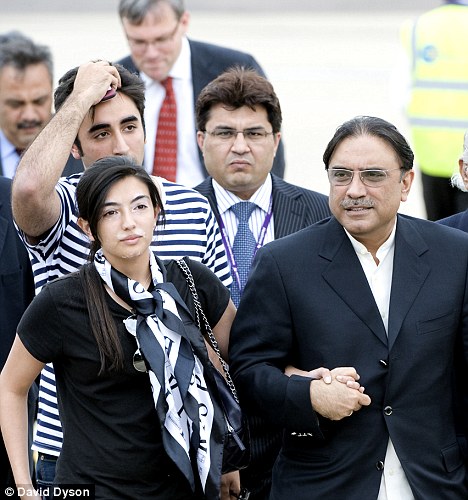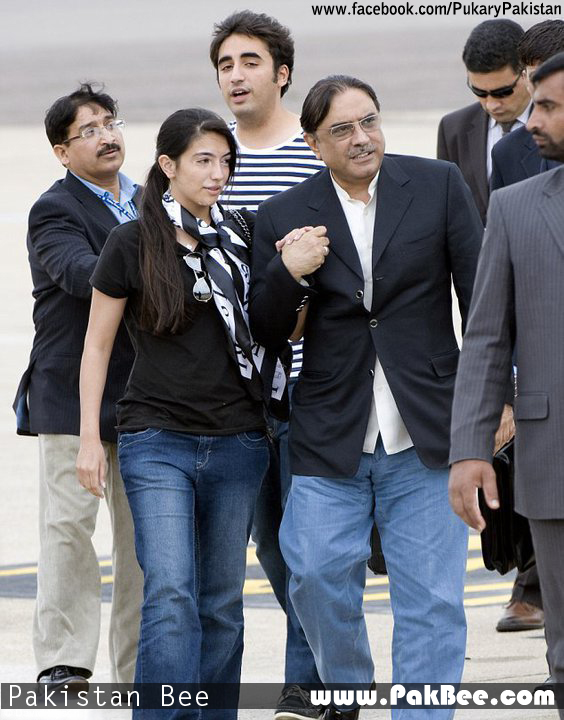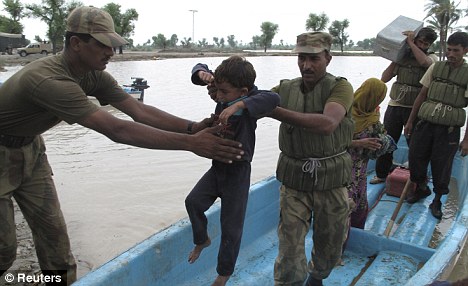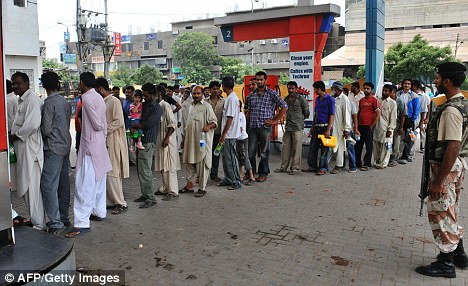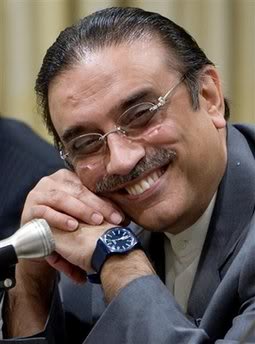 KARACHI: A spokesman for the Jang Group of newspapers on Friday expressed deep sorrow and regret over the release of a legal notice, said to have been issued by the authorities against the Group, a copy of which has not yet been officially delivered, but it has been made public on TV channels and media within the country and worldwide.
KARACHI: A spokesman for the Jang Group of newspapers on Friday expressed deep sorrow and regret over the release of a legal notice, said to have been issued by the authorities against the Group, a copy of which has not yet been officially delivered, but it has been made public on TV channels and media within the country and worldwide.
The spokesman said the notice appeared to be part of a trend to gain cheap, free publicity and claim innocence without pursuing the case in any court of law. Previously also the authorities had resorted to the same tactics by issuing notices against the Group when reports filed among others by Kamran Khan, a senior journalist of the Group, which were never followed up with action. The spokesman said it was interesting to note that the government had not reacted to hundreds of reports and stories about the corruption, loot and plunder of the rulers to prove its innocence but it had taken up a matter of huge public interest to target the Jang Group, as part of its continued policy to inflict financial losses to the Group. It would have been a matter of satisfaction if such prompt notice had been taken against reports of loot and plunder.
It was observed by the spokesman that the Jang Group has again been singled out while the same public interest story was already being widely circulated in the media worldwide, on websites and internet blogs and no one took any notice. It would be seen now whether only the Jang Group is targeted or others also are served with similar notices. What the Jang Group had done was to make an honest attempt to quash these widely circulating rumours and stories and had followed the strict principles of professional ethics by not only very prominently highlighting the denials issued by the spokesman of the President’s House and personal aide of the President Farahnaz Ispahani but had also approached the lady concerned, as it should be done in all such cases, by calling her and talking to her directly so that complete facts could come out once for all.
It should also be noted that the headlines of the Jang Group stories focused on proving that these rumours and web-stories were incorrect. Two particular headlines read as follows: “Presidency rejects Zardari’s marriage reports” (The News, Feb 4, 2011) and “Dr Zamani denies wedding Zardari”, Says she never met the president (The News, Feb 5, 2011). These reports did not reproduce any of the material which was circulating on dozens of web sites including many specific details. The numerous videos and speeches of Dr Zamani, available on the U-Tube and Internet containing many emotional references to President Zardari and “Son” Bilawal were also not used in any of the stories.
It is unfortunate that Dr Zamani, when contacted by Group Editor Mr Shaheen Sehbai, refused to deny or confirm the truth of the story. Her evasiveness gave rise to more questions as in such personal matters a simple no could have ended the matter there and then. That Dr Zamani was evasive even on the second day was confirmed when another senior journalist of the Jang Group, Mr Azim M Mian, who knows her personally, tried to contact her and get her viewpoint. She was again evasive and after a lot of persuasion, and later intervention by some Pakistani officials, she ultimately gave her version. It was also reproduced prominently in the Jang Group.
The Jang Group emphasises that in dealing with these stories, complete professionalism was used, all norms of ethics were observed, all versions were prominently printed and frivolous details which had been circulating for days and weeks were ignored. There was absolutely no malice and ill-intention but to bring out the truth about the whole issue which concerned a duly elected President of Pakistan. It may not be out of place to mention that public office holders, elected politicians and celebrities continue to remain a subject of great public interest round the world and there are numerous examples, from President Bill Clinton, to President Sarkozi to Lady Diana, to Prime Minister Berlusconi, and many such world figures, who have come under media scrutiny on matters of their personal life. Just two weeks ago Italy’s prime minister faced a prostitution investigation in Milan over a teenaged nightclub dancer who attended parties at his private residence. All these reports do not mean that the media is targeting any leader for personal malice or deliberately slandering him or her.
The Jang Group believes that the case is just the reverse when targeting the Group by the Presidency is concerned. There have been many attempts to stifle the voice of this Group by various government tactics and we had to seek the ultimate justice from the Supreme Court of Pakistan to get our rights in the World Cup rights case recently. It should be noticed that while several media outlets and newspapers have published the same stories with great details, notices have only been issued to the Jang Group. It is a clear case of using this subject to victimize the Group for reasons other than this particular issue, including the fact that the Group has relentlessly exposed corruption and bad governance of the present rulers.
The latest notice is also a part of that vicious campaign to try to inflict losses on the Group. While there is absolutely no reason to object to the stories published in the Group newspapers, as these were balanced, professionally handled, objective and true, the issuance of the notice asking for $100 million (Over Rs8 billion) is nothing but another show of contempt and hatred against the Group and its dedicated professionals who have done a remarkable job of exposing corruption at the highest level and have brought numerous cases to light, in many cases forcing the corrupt politicians and officials to pay back billions to the national exchequer.
People should remember that during the tenure of military dictator Pervez Musharraf the Jang Group and its professionals exposed his wrongdoings. In consequence the Jang Group was targeted by dictator Musharraf causing loss of billions of rupees to the Group. The Jang Group, however, refused to submit to the dictator’s pressure. As always, Jang Group is today committed to stand against the wrongdoing of anyone whatever high status he may enjoy. This has tremendously increased the respect and credibility of the Group among the people.
The Group is proud of its highly professional journalists who have shown remarkable courage and commitment despite the use of high-handedness and at times brute use of force to silence them. The Group spokesman said some people in the Presidency would gain no benefit by using those media elements who had remained their business partners and one of whom fled the country because he was wanted by NAB (National Accountability Bureau). To let our readers make their own independent judgment on the two stories on the subject of Mr Zardari and Dr Zamani, we are hereby reproducing the full text of both the stories so that anyone who has not read them can judge whether there is any intention to slander or cause damage to any one’s reputation:
The News, Feb 4, 2011
Presidency rejects Zardari’s marriage reports
WASHINGTON: Dr Tanveer Zamani, a practicing surgeon and a PPP activist in the US, and Farahnaz Ispahani, PPP MNA and a close aide of President Asif Ali Zardari, have commented differently on a flood of reports and blogs on the Internet which refer to the possibility that Mr Zardari may have secretly married again.
The Sindh Medical College graduate, in her late 40s, who did her PhD in political science from Ireland in 1996, before moving to US for practicing is of Mediterranean descent and reportedly lives in Gramercy Park, Manhattan, New York. Many websites claim that she owns estates in London, Dubai, Islamabad and Manhattan. She is also a known Democrat and supported Obama’s 2008 election campaign. She actively participated in Obama’s Healthcare reform bill to make it a law. Talking to me on Thursday morning when I called her on her toll free phone, she responded to my questions in a rather roundabout way. I confirmed twice that she was Dr Zamani. Her voice was the same as in many U-Tube videos. I introduced myself and asked her one simple question: “There is a lot of buzz on the Internet about a personal matter about you, would you like to confirm or deny it.” I did not mention the subject. Dr Zamani said she would not say anything but she had sought legal advice on the matter. I then asked directly that this was about her alleged link to Mr Zardari and a very personal matter, so what was illegal about it and why she had sought legal advice?
She said: “Personal matters are a very low priority. We have to handle the Egypt situation, the prices situation (in Pakistan), introduce Bilawal as the PPP leader, and many other issues. Personal issues come very low on my priority.” After this strange response, I asked her again: “Are you Mrs Zardari.” She said: “I would not comment on it.” I again said was it anything illegal that she had done. She said I have sought legal advice on how to handle the situation. “So you would not deny or confirm,” I asked. She said: No comment. I thanked her, wondering whether I had just completed the first interview of Pakistan’s prospective First Lady.
Reports circulating widely on the numerous blogs say recently she has been prohibited to attend public political meetings due to her security issues. In one such report it has been alleged that President Zardari in a meeting with Obama on 14/1/11 in DC, requested his help in acquiring security for Dr Zamani. No one would confirm this information. But on Thursday a categorical denial on this subject came from the Presidency and PPP MNA Farahnaz Ispahani, who also has been a spokesperson for the president and the PPP at same time.
Presidency spokesman Farhatulla Babar rejected the reports about president’s marriage. He said these speculative reports were the figment of a sick imagination, showing that the president’s opponent’s had chosen to target his personal life.
In a brief message posted on a blog Farahnaz posted from her email (fispahani@gmail.com) at 7:03 pm Pakistan time: “President Asif Ali Zardari is the widower of Shaheed Mohtarma Benazir Bhutto. His marital status remains that of a widower”. “This is another nasty, pernicious rumour started by opponents to hurt the president, his family and the party. It is a baseless rumour”.
The News, Feb 5, 2011
Dr Zamani denies wedding Zardari
Says she never met the president
NEW YORK: Dr Tanveer Zamani on Friday denied her wedding with President Zardari and also claimed that she has never met President Zardari either in US or elsewhere. “I have never met President Zardari and the only reason, I have refrained from commenting on an Internet hoax involving me is because I deemed it against my dignity to respond to such a hoax. Bloggers and journalists do not have the right to make up stories and disrupt the lives of people,” she said in an email message.
She explicitly and clearly denied being married or being subject to a proposal or notion of being married to the president, whom she holds in high esteem. Tanveer Zamani said in her email that this is her first ever denial on the matter while rumours and emails about her wedding have been in circulation for the last three weeks. Some Pakistanis in the community regarded the silence of Tanveer Zamani over her wedding rumours as “her own ploy to seek attention” of President Zardari. Why and how a dignified and educated Pakistani woman can ignore, keep silent over all such emails and rumours about her wedding with the president of Pakistan. She has been avoiding to make any categorical denial to journalists, when she was approached for her version or denial.
How this story of Pakistani community in US got to Islamabad and other capitals needs to be explained. Since her active participation in local PPP in USA, Dr Tanveer Zamani has been a highly vocal “jiyali” of President Zardari and PPP. She invited hostility from some of her PPP co-workers, who started a campaign of nasty emails against her. This email war has been on for the last five months. Some Internet surfers sent emails/comments about her passion for the personality of President Zardari.
During the last visit of President Zardari, her tireless efforts to meet the president failed. Factually, during her activism, she has never met Asif Zardari. Her meeting with Farhatullah Babar and few other PPP ministers can be seen on her Facebook page. She spent a lot of money on her websites, interviews and statements to publicise her pictures and speeches.
The story about the reported Zardari-Zamani wedding is not new to many New Yorkers and Internet surfers. It has been on Facebook and some other websites for the last three weeks. Even some emails were circulated when President Asif Ali Zardari was in Washington on January 14. When the president left the US after his short visit, an email was circulated that Dr Tanveer Zamani has also left for Dubai where arrangements for a quiet wedding were in place for Dr Zamani and President Zardari. Since then some emailers and Internet surfers added more to this wedding episode and wished a peaceful and happy life for the couple.





